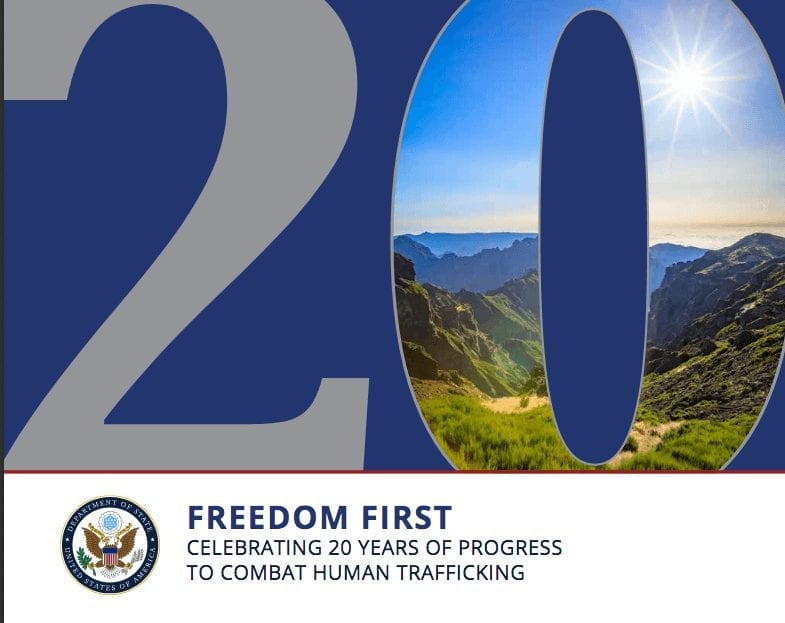
Celebrating 20 Years Of Progress To Combat Human Trafficking
In the year2020, the United States commits to intensify our efforts to stop human traffickers,protect victims,and work to prevent this crime. The United States declares 2020 as the year of “Freedom First,” in recognition that human dignity,autonomy,and freedom are essential to the exercise of our rights and liberties,and that delivering on unfulfilled promises of freedom for the millions of people whom traffickers are exploiting must remain one of our first priorities. The year 2020 is noteworthy for the anti-trafficking movement, as it marks the 20th anniversary of the passage of the Trafficking Victims Protection Act (TVPA) of 2000 and the adoption of the United Nations Protocol to Prevent, Suppress and Punish Trafficking in Persons, Especially Women and Children, supplementing the United Nations Convention against Transnational Organized Crime, commonly regarded as the “Palermo Protocol.”The passage of the TVPA is monumental because it is the first comprehensive federal law to address trafficking in persons. The law provides the United States government with the tools necessary to combat the wide range of tactics by which modern traffickers operate. The TVPA works to combat all forms of trafficking (sex and labor trafficking), and it established the Department of State’s Office to Monitor and Combat Trafficking in Persons (TIP Office). I am grateful for the framework of freedom within the United Nations that urges all countries, including our own, to accelerate efforts to eradicate the crime of human trafficking. Around the world, there are 175 Parties to the Palermo Protocol and 168 governments have enacted legislation criminalizing all forms of human trafficking and providing services to care for survivors.I am grateful for all those who led the fight for freedom. This movement was built upon the efforts of early advocates who cut through bureaucracy and stigma to assert the need for action and urgency. This movement is indebted to the Members of Congress and their staff who fought determinedly for this issue, as well as the public servants, civil society leaders, academics, journalists, and many others who helped create the political will for enactment of the TVPA. The movement is especially indebted to courageous survivors who have spoken out over the years, both as crucial witnesses in early cases that brought traffickers to justice under narrower pre-TVPA statutes, and as tireless advocates at the forefront of the anti-trafficking movement from its earliest days through the present.Passionate, vigorous debates were instrumental as they helped achieve broad consensus behind this legislation.
Click here to read the full report.
